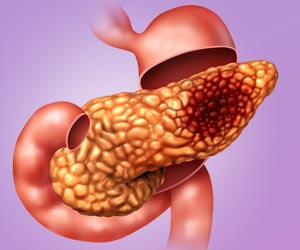According to a new data, almost half of all patients with cancer of the voice box (larynx) who receive radiotherapy treatment will experience malnutrition.
According to a new data, almost half of all patients with cancer of the voice box (larynx) who receive radiotherapy treatment will experience malnutrition.
The data was presented at the European Society for Medical Oncology's Symposium on Cancer and Nutrition (Zurich, 20-21 March 2009).Larynx cancer is one of the most common head and neck cancers, with 159,000 new cases and 90,000 deaths reported worldwide each year.
"The risk of larynx cancer is greatly increased by tobacco smoking and alcohol consumption," says researcher Jacqueline Langius from the Department of Nutrition and Dietetics at VU University Medical Center in Amsterdam. "Populations at high risk are therefore those where both habits are common."
Langius and colleagues studied 238 patients with early stage laryngeal cancer who received radiotherapy, a standard form of treatment. They found that 44% of patients developed malnutrition, which researchers defined as a weight loss of at least 5%.
The sub-group of patients whose cancer had spread to the lymph nodes in their neck, or who were at high risk of such spread, were also treated with irradiation on their neck lymph nodes. In the study almost half of patients (48%) received irradiation on the neck nodes. The researchers found that these patients were more than four-times as likely to become malnourished.
Malnutrition has been linked to a wide range of physical and clinically relevant side-effects in cancer patients, including an impaired response to treatment, adverse reactions and reduced quality of life. Consequently, preventing weight loss is important.
Advertisement
Ideally, dietary counseling should be offered by a trained dietician, Langius says.
ARU/L














